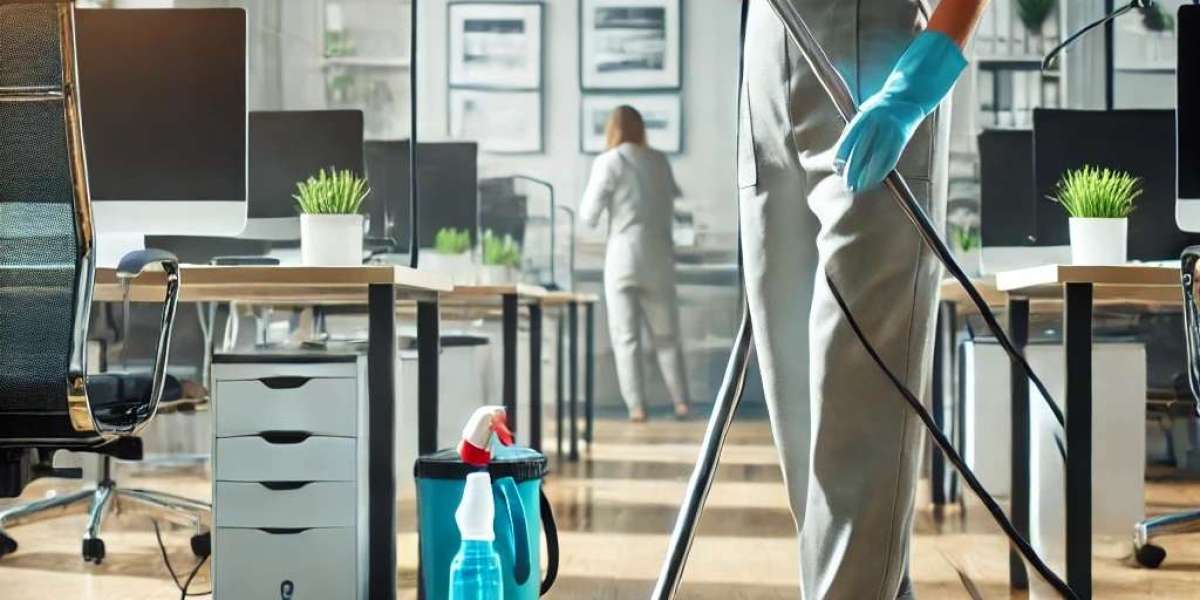Introduction
During the trial period, businesses have a golden opportunity to evaluate a service’s performance and determine if it meets their needs. This article provides a step-by-step guide to assessing an office cleaning service during the trial phase, ensuring that you make an informed decision.
Key Steps to Evaluate an Office Cleaning Service
1. Set Clear Expectations
Before the trial begins, outline your expectations clearly. Discuss the scope of work, frequency, and any specific cleaning needs your office requires.
Checklist:
- Specific cleaning areas (e.g., restrooms, workstations, kitchens).
- Schedule and frequency.
- Special requirements (e.g., eco-friendly cleaning supplies).
2. Monitor Punctuality and Reliability
Time management is a crucial factor in evaluating the professionalism of a cleaning service.
What to Observe:
- Arrival and departure times.
- Completion of tasks within the scheduled timeframe.
- Handling of last-minute changes or emergencies.
3. Assess Cleaning Quality
The primary goal is a clean, presentable office. During the trial, monitor the quality of cleaning provided.
Evaluation Points:
- Cleanliness of high-traffic areas.
- Removal of dust, stains, and clutter.
- Consistency in meeting cleanliness standards.
Pro Tip: Conduct random spot checks to verify thoroughness.
4. Inspect Equipment and Supplies
The tools and cleaning products used by the service should align with your company’s standards and environmental policies.
Key Considerations:
- Are the products eco-friendly and non-toxic?
- Is the equipment modern and efficient?
- Are supplies included in the service cost?
5. Evaluate Communication
Effective communication is essential for resolving issues and maintaining a smooth partnership.
What to Look For:
- Responsiveness to feedback and queries.
- Clarity in reporting completed tasks.
- Willingness to address complaints promptly.
6. Gauge Professionalism and Attitude
The demeanor of the cleaning staff reflects the service's commitment to quality.
What to Observe:
- Staff uniform and identification.
- Politeness and respect for office protocols.
- Discretion in sensitive areas.
7. Track Feedback from Employees
Gathering opinions from your team provides valuable insights into the service's impact on their workspace.
Questions to Ask:
- Are employees satisfied with the cleanliness of their workspaces?
- Have there been any complaints about the service?
- Do employees notice improvements in overall hygiene?
8. Review Costs and Value
Compare the quality of service with the cost to determine if the pricing is justified.
Factors to Consider:
- Transparency in billing.
- Any hidden or additional charges.
- Value-added services (e.g., disinfecting high-touch areas).
Red Flags to Watch During the Trial Period
- Missed or incomplete tasks.
- Lack of communication or unprofessional behavior.
- Frequent complaints from employees.
- Use of substandard cleaning products or outdated equipment.
Benefits of a Thorough Evaluation
By carefully evaluating a cleaning service, businesses can:
- Maintain a healthy and hygienic office environment.
- Improve employee satisfaction and productivity.
- Save costs in the long run by partnering with a reliable provider.
Conclusion
The trial period is an excellent opportunity to ensure the cleaning service aligns with your company’s needs. By observing punctuality, cleanliness, communication, and overall professionalism, you can make an informed decision. Choosing the right cleaning service not only ensures a spotless office but also boosts employee morale and leaves a positive impression on clients and visitors.
FAQs
Q1: What should I prioritize during the trial period? Focus on cleaning quality, reliability, and the service provider’s ability to meet your specific needs.
Q2: How long should a trial period last? A typical trial period ranges from 2-4 weeks, allowing enough time to evaluate consistency and performance.
Q3: What if the service doesn't meet my expectations? Provide feedback and allow an opportunity for improvement. If issues persist, consider exploring other options.
Q4: Are eco-friendly cleaning products necessary? While not mandatory, they contribute to a healthier workspace and reflect positively on your company’s environmental policies.
Q5: How do I measure employee satisfaction with the cleaning service? Distribute anonymous surveys or conduct informal feedback sessions to gather honest opinions.








